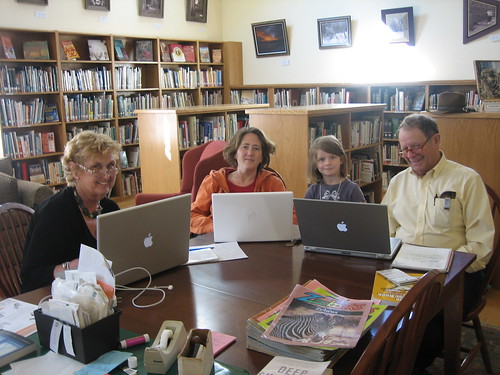Okay so a few days ago I posted to tell you that I was quoted in the New York Times. This article had the predictable effects. I got some nice email. My family and friends made fun of me: “You’re in the Style section?! LOL!” MetaFilter talked about the article. MetaFilter talked about me.
The article also had many people who were pleased with it, or had mixed feelings about it, and some people who just plain weren’t happy with it.
I thought the article was silly and decent for what it was (a style article) and I usually think that anything that doesn’t flat out call us losers and psychopaths is okay by me. What I found most interesting, besides reading people’s commentary on it, was the generated buzz. As of right now, this article was the most emailed article on nytimes.com today. I had friends who sent it to me before they even knew I was in it. It’s the second most popular article on Technorati. And — and this is odd and I may be looking at cause and effect wrong — a totally unrelated article about librarians from the BBC news home page is their most emailed story despite the fact that the article is 18 months old. This is the long tail in action.
So, I don’t care much what you think about hipsters. I’m personally proud of the braininess of the profession and if it comes with dowdiness I’m all for it. However, a few things should be clear. The author of the article is trying to say something nice about hipsters by associating them with librarians and librarians by associating them with hipsters. Maybe you don’t share her cultural associations, but it’s not a negative piece. Everyone in the article is portrayed in a positive light. How often does that happen in anything but “puppet show a complete success!” articles about the library? The popularity of this article is likely not because people are sharing it saying “Heh, librarians are such total dorks and losers they think they’re cool and they’re not!” it’s because the framing of this story seems to resonate with people in some way.
People are sending it to their friends and family members who are librarians. Librarians are sending it to their friends and family members. People are sending it to their librarians. People who want to get their message out would kill for this sort of attention. If the message you want to send is “Wow, I would have written this differently and pointed out things that this author completely missed about the profession.” then by all means do that. But watch for the “Gee someone tried to say something nice about librarians in a major media outlet and the bitchy librarians bit their head off for it.” attitude. I feel like we as a profession have issues with popularity generally. We’re suspicious of it and frustrated by it. Librarian critiques of Google or Wikipedia often point to their popularity as if we should all see what a negative attribute that is. There is nothing wrong with letting ourselves and our work shine brightly, and we can still try to be gracious if gently correcting when others try to cast some more light in our direction.
